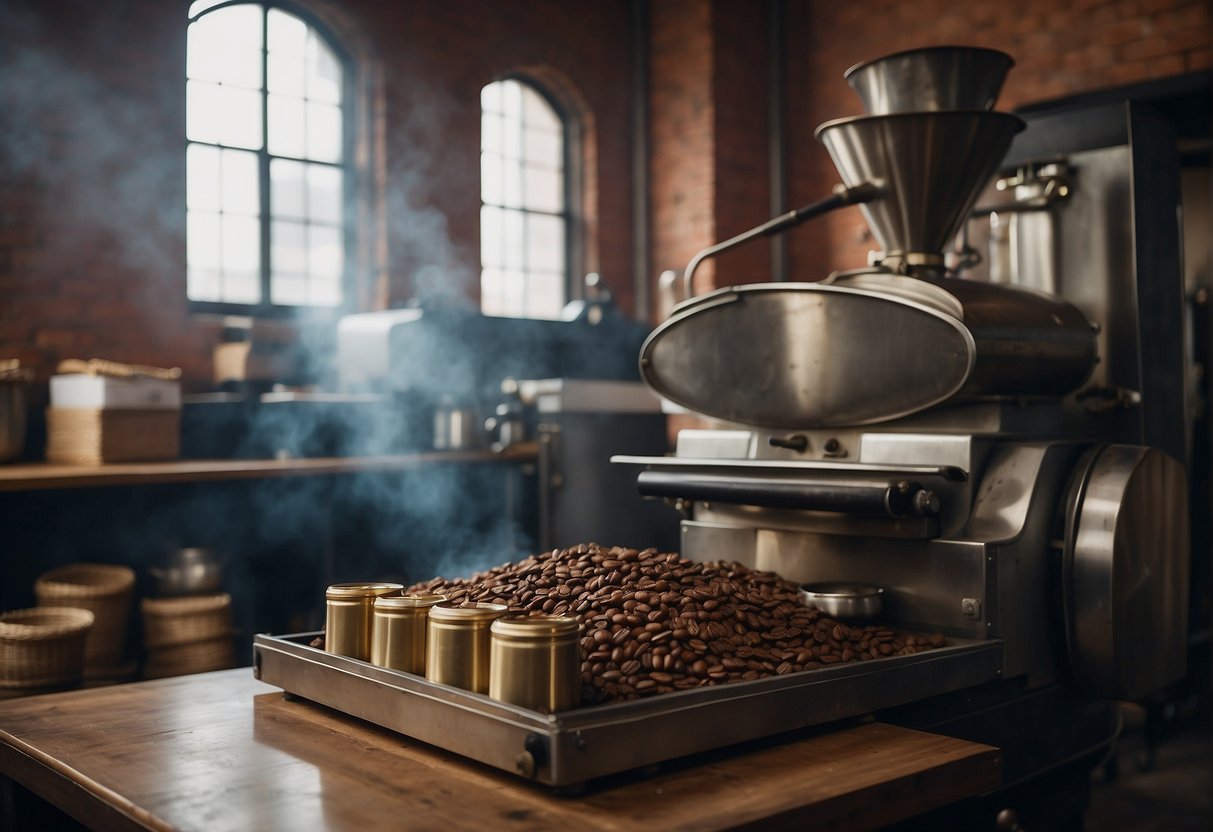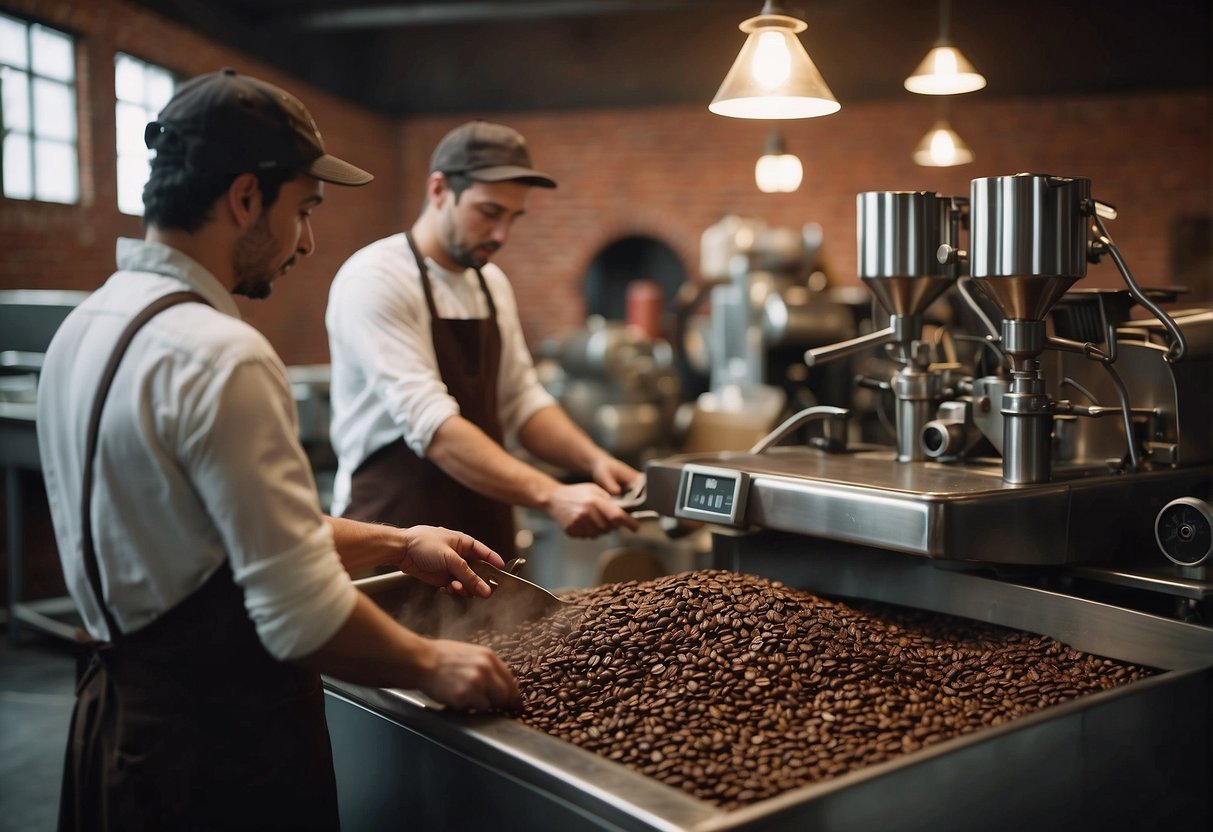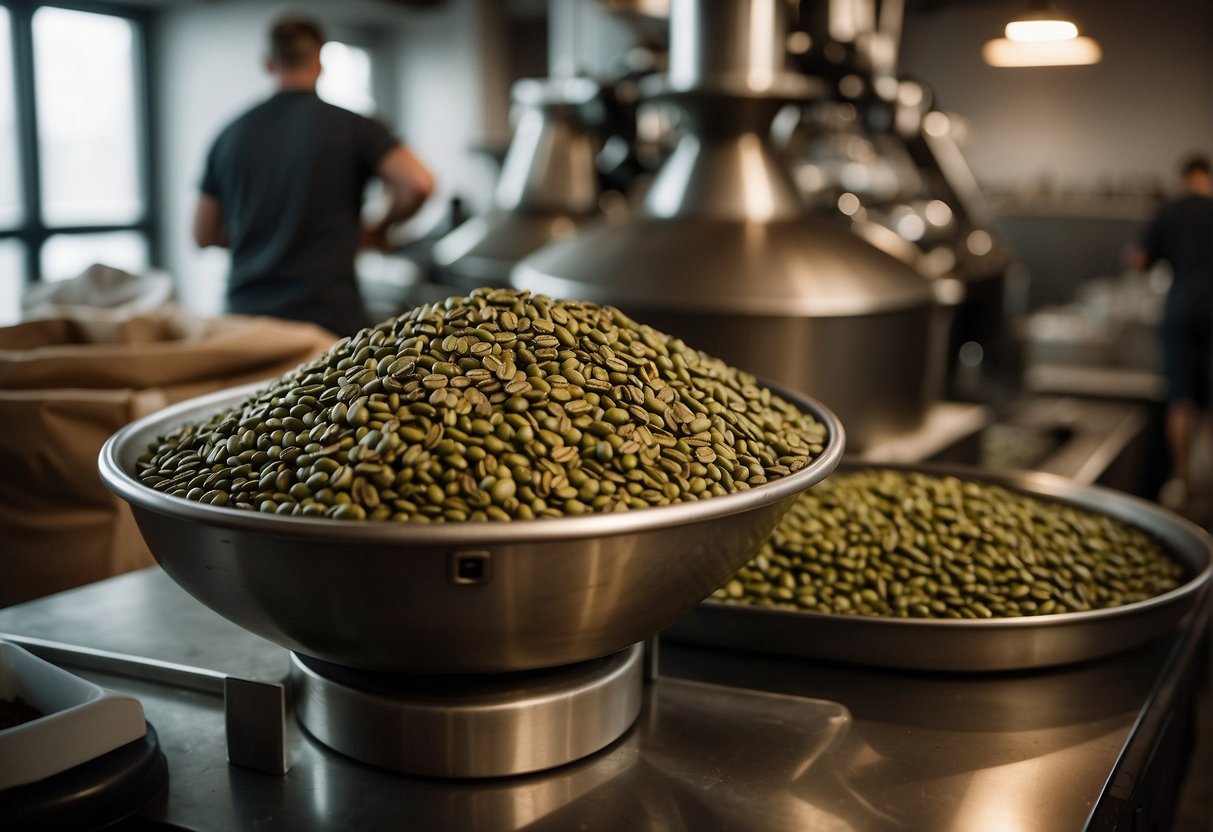The province of Quebec in Canada boasts a vibrant coffee culture, with an array of coffee roasters who are dedicated to the craft. With a keen focus on quality and sustainability, these coffee roasters take pride in sourcing the best beans, often paying above market price to establish fair and ethical relationships with growers. This dedication is evident in the flavorful and diverse profiles of the coffees they produce, which cater to the palates of both casual coffee drinkers and connoisseurs alike.

In cities like Montreal and Quebec City, the coffee scene is not just about the drink but also the experience it brings. Patrons are invited to enjoy their coffee in atmospheres that range from the rustic and charming to the modern and chic. Some roasters like Cantook in Quebec City embody the third-wave coffee movement, highlighting the artistry of coffee roasting and brewing as an artisanal craft. The nuanced approach of these roasters enriches the coffee experience, presenting it as an accessible luxury to be savored.
These roasters are not only places where one can grab a quick caffeine fix but are also educational hubs where the public can learn about the journey of coffee from bean to cup. Establishments such as Le Brûloir in Montreal embrace this educational aspect, enriching the coffee community’s knowledge and appreciation for the craft. With such a passionate coffee roasting scene, Quebec continues to cement its reputation as a destination for those seeking exceptional coffee coupled with a deep respect for the art of roasting.
The History and Growth of Coffee Roasting in Quebec

The landscape of coffee roasting in Quebec has evolved intricately, reflecting its rich history and the dynamic shift towards specialty coffees that has marked the province’s culture.
Pioneering Quebec Roasters
In the early 20th century, roasters in Quebec began shaping the coffee scene, long before the emergence of third-wave coffee. One of the stalwarts, Café Hubert Saint-Jean, opened in 1923 and profoundly influenced coffee roasting techniques and culture in the region. They demonstrated a commitment to growth, roasting approximately 60,000 pounds of coffee per year, highlighting the province’s potential in the coffee industry.
Coffee Culture Evolution in Quebec
The third-wave of coffee, a movement emphasizing high-quality coffee, sustainability, and transparency, has prominently infused Quebec City, particularly in historic areas like Place Royale. The city’s embrace of artisanal and craft approaches to coffee roasting is seen in operations like Binocle, heralding as the first 100% carbon-neutral coffee in Quebec. This evolution towards a refined palate for coffee aligns with global trends prioritizing the distinctiveness of flavor and origin.
Top Coffee Roasters in Quebec

Quebec’s coffee scene is rich with artisan roasters passionate about quality and craftsmanship. The following are a select few of the most esteemed coffee roasters in the region, known for their meticulous approach to roasting and deep commitment to coffee excellence.
Cantook Micro Coffee Roasters
Cantook Micro Coffee Roasters, established in the heart of Saint-Jean-Baptiste, is celebrated for its local, small-batch coffee roasting techniques. At Cantook, every batch of coffee sold and served is the product of on-site roasting, cementing its reputation within Québec City’s coffee connoisseurs. Learn more about Cantook’s signature roasts and their third-wave coffee approach.
Escape Coffee Roasters
Escape Coffee Roasters stands out in Limoilou, an area quickly becoming synonymous with coffee innovation. This roastery focuses on direct-trade purchasing, ensuring a high level of quality and ethical sourcing. They have garnered accolades for both their single-origin and blend offerings, catering to a spectrum of taste preferences.
Saint-Henri Micro-Torréfacteur
Appreciated for its traditional roasting methods, Saint-Henri Micro-Torréfacteur exemplifies the craft with a selection of beans that are as rich and diverse as the neighborhoods they serve. They’ve established themselves as a cornerstone of the specialty coffee movement in Quebec, with a keen emphasis on authenticity and a direct relationship with growers.
Zab Coffee
Delighting coffee aficionados with their meticulously roasted beans, Zab Coffee is a fundamental player in the province’s specialty coffee sector. They’re known for collaborating with select coffee farmers to produce distinctive and memorable coffee experiences. Zab’s commitment to quality extends from sourcing to serving, ensuring a premium cup every time.
The Art and Science of Coffee Roasting
Coffee roasting in Quebec blends tradition with technology, producing specialty coffees that resonate with connoisseurs and casual drinkers alike. This craft relies on precise roasting techniques and a commitment to sourcing sustainable beans.
Roasting Techniques
Roasters apply heat to transform green coffee beans into the richly flavored beans known for their role in brewing. They carefully monitor the temperature and timing to achieve a spectrum from light to dark roasts, each offering a unique flavor profile. Specialty coffees may undergo specific roast profiles to highlight their intrinsic qualities, while the gear used by baristas further refines the taste experience.
Optimal Temperature Profile:
- Light Roast: Between 180-205°C (356-401°F)
- Medium Roast: Between 205-220°C (401-428°F)
- Dark Roast: Above 220°C (428°F)
Sourcing and Sustainability
Quebec coffee roasters often emphasize the importance of ethically sourced coffee beans, which ensures fair compensation and sustainable practices for farmers. They seek direct trade partnerships to obtain high-quality beans that contribute to the integrity and distinctiveness of the final product. These relationships foster sustainability in the coffee chain and resonate well with consumers seeking ethically conscious options.
Key Points in Ethical Sourcing:
- Fair compensation to farmers
- Direct trade to ensure quality
- Emphasis on environmental sustainability
By balancing art with science, Quebec roasters are defining their place in the diverse world of coffee, respecting the journey from farm to cup.
Exploring the Coffee Shops and Cafes of Quebec
https://www.youtube.com/watch?v=U4lnqTEqZ5U&embed=true
Quebec’s vibrant cafe culture offers an array of unique experiences from the artisan coffee roasters of Quebec City to the bustling coffee shop scene of Montreal. Visitors and locals alike can enjoy a diverse range of products, from expertly roasted beans to exquisite pastries, in settings that often feature an abundance of natural light.
Quebec City’s Must-Visit Cafes
Quebec City’s cafe scene is epitomized by third-wave coffee shops that prioritize quality and experience. One such destination is Les Cafés Du Soleil, a haven for coffee enthusiasts that, despite having no official website or Facebook page, has garnered acclaim through word of mouth and positive online reviews. Its absence from the digital space is more than made up for by its tangible atmosphere and dedication to the craft of coffee.
Locals often advocate for a visit to Café Saint-Henri, situated in the trendy Saint-Roch neighborhood, recognizable for its sleek style and commitment to in-house roasting. This cafe stands out for balancing a friendly atmosphere with a focus on meticulously sourced coffee beans.
Montreal’s Coffee Shop Scene
Montreal does not lag behind when it comes to coffee, boasting a scene that is both dynamic and diverse. Coffee shops in Montreal are more than just places to get a caffeine fix; they are communal spaces often illuminated by generous swaths of natural light that invite patrons to linger over their lattes.
Pikolo Espresso Bar exemplifies Montreal’s dedication to coffee, with a passion for creating a memorable customer experience that extends beyond their expertly crafted beverages. Their variety of products, including specialty brews and tempting pastries, pulls in a discerning clientele.
In summary, exploring the coffee shops and cafes of Quebec provides a rich tapestry of flavors, atmospheres, and experiences. Each establishment offers something unique, whether it be for the casual cafe-goer in Quebec City or the coffee aficionado of Montreal.
Beans and Beyond: Understanding Coffee Varietals
The Quebec coffee scene offers an array of coffee varietals, each with unique flavor profiles influenced by their country of origin’s terroir. Coffee enthusiasts can expect to taste the nuanced differences brought forth by the region’s soil, climate, and elevation.
Single-Origin Highlights
Single-origin coffees from Kenya are distinguished by their high acidity and fruity flavors. This region’s coffee commonly exhibits notes of black currant giving it a distinctive taste. Meanwhile, coffees from Ethiopia, the birthplace of coffee, often carry floral and berry flavors due to the heirloom varietals grown in its diverse climates.
Coffees from Costa Rica are known for their medium body and balanced taste, with hints of chocolate or citrus depending on the region. The volcanic soils of Guatemala contribute to coffee’s full-bodied texture with chocolate and nutty flavors, often with a touch of sweetness from regions like Antigua.
Continuing south, Peru is a rising star in the coffee world. The country’s coffee profile often features milder acidity with nutty or chocolate notes, supplemented by fruit tones reflecting the rich biodiverse environment.
Blends and Their Complexities
Blends combine beans from multiple origins, like Brazil, Mexico, and other countries mentioned above, to create complex flavor profiles. Brazilian beans often provide a chocolatey, nutty base in blends, thanks to their natural pulped processing method.
A well-crafted blend will balance the heavier, chocolate notes from Mexico, with brighter, acidic notes from beans like those of Guatemala. This complexity ensures a cup that is both rich and invigorating, much like the multicultural tapestry of the Quebec coffee scene. The goal of blending is to create a harmonious cup that exhibits the best qualities of each component, without any single origin overpowering the others.
The blend’s final flavor can also be influenced by the roast profile, a mastery that Quebec’s roasters excel at, drawing in coffee aficionados who appreciate the subtleties that define a high-quality brew. Indeed, the knowledge and skill of local roasters shine through in each cup, illustrating the influence of both terroir and human craftsmanship on the world of coffee.
